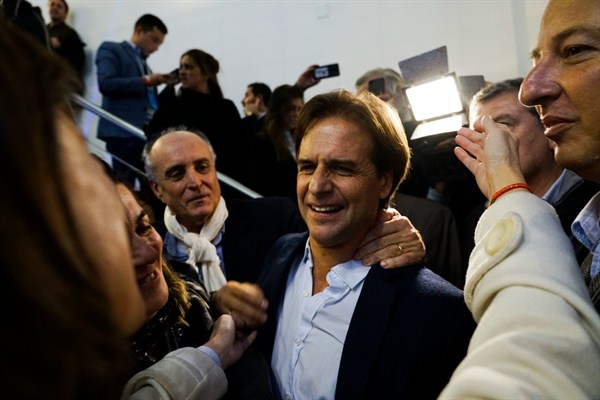After over a decade in power, a leftist party is damaged by corruption allegations. A weakened economy and parlous public finances add to public disaffection. Mounting fears over street crime fuel a sense of crisis. Challengers on the right, promising a clean-up and a crackdown, capture public attention—and eventually the presidency.
The same broad-strokes scenario has played out over the past 18 months across much of Latin America, notably in Argentina, Chile and Brazil. And with under a year until presidential and congressional elections in October 2019, a similar story—albeit with characteristic understatedness—is unfolding in Uruguay, the Southern Cone’s final outpost of the “pink tide” that swept left-wing leaders to power in the early years of this century.
The Frente Amplio, or FA, a broad coalition of centrist parties and left-wing movements, has held the presidency and both houses of congress in Uruguay since 2005. While the humble personal style, guerrilla backstory and folksy wisdom of former President Jose “Pepe” Mujica, in office from 2010 to 2014, earned international adulation, the FA’s mainstay has been President Tabare Vazquez, a mild-mannered oncologist currently coming to the end of his second term, having already held office from 2005 to 2010. Constitutional limits, which prohibit consecutive presidential terms, bar him from running again next year. But in any case, Vazquez’s support has stagnated, and the FA is roughly tied with its closest rival in terms of voter intentions ahead of the national polls.

